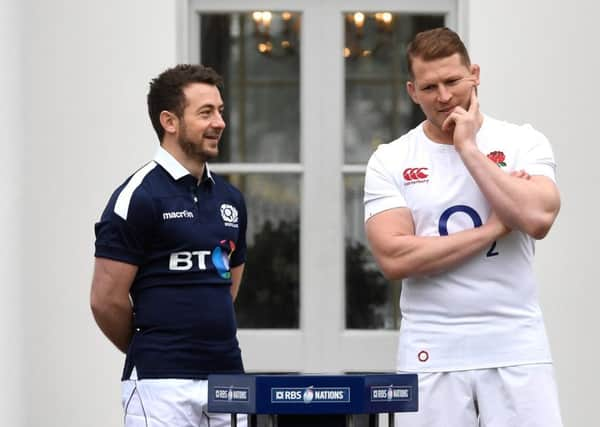Iain Morrison: Six Nations is unsurpassed in world sport


What the statistic said was that Six Nations matches generate an average attendance that is higher than any other sporting tournament and the average figure for games in 2015 was an impressive 72,000 compared to a 68,400 average at NFL matches in the same year. That statistic becomes even more impressive when you consider that Dublin’s Aviva Stadium only holds a modest 51,700 spectators.
That this venerable old tournament is getting stronger in the professional era is something that Scottish rugby can be thankful for.
Advertisement
Hide AdAdvertisement
Hide AdShould rugby go the way of football, where clubs hold pre-eminence over the international game – and that is the motivation behind the English clubs’ latest demands for a compressed, five-week Six Nations – then the Scottish pro-teams will slip slowly beneath the waves of big money investors in the French and English game, just as our football clubs have done, although you might want to swap Spanish for French in the round-ball world.
The Six Nations is sufficiently strong to survive a long period when not one but two nations – Scotland and Italy – were seriously underwhelming, although things may be changing.
Scotland should be very competitive in every match this season and Italy feel they too are making progress under the canny watch of Conor O’Shea and Brendan Venter, the South African defence coach taking a more hands-on role than the Irishman.
At the turn of the millennium, serious consideration was given to fixing the fixtures so that England always played France on the last weekend. The reasoning went that since one or other of the European giants would inevitably win the Six Nations then they should have that end-of-season play-off, in effect a Six Nations final.
Bad idea.
In the last decade England and France have each won the championship twice, Ireland and Wales three times each. Elite sport and certainty are like opposing magnets, every time they come close, they repel each other.
Ireland finished fifth in 2013, only to win the tournament the very next year. England bossed everyone last year and are on a long winning streak under their outspoken Aussie coach but it might be worth backing France who will fancy giving Eddie Jones a bloody nose to match his black eye when they turn up at Twickenham on Saturday.
Wales have averaged 64 points against Italy over the last couple of seasons but O’Shea is targeting the Welsh on that opening weekend and might even surprise them. Ireland are worried about getting caught cold at Murrayfield and with good reason.
In short, this is the most competitive, and hopefully compelling, tournament of the entire professional era, provided, of course, that teams can keep 15 men on the field for the 80 minutes.
Advertisement
Hide AdAdvertisement
Hide AdThe new tackle laws, and the mandatory sanctions that are part of that deal, have the potential to ruin the competition. It is possible to win short-handed, just look at Racing’s Top 14 final triumph last season, but you wouldn’t want to try it too often. Provided referees go yellow for high hits that are genuinely accidental, attackers slip, players are mismatched in height etc etc, then common sense should prevail.
Bonus points are another Six Nations innovation but you have to imagine that most teams will be focusing simply on winning rather than arguing before kick-off about how many tries they might manage.
And when it comes to winning, Ireland look best placed to secure this season’s championship, potentially even a Grand Slam if everything falls into place, because Joe Schmidt is the grand master of rugby coaches; he operates several steps ahead of the opposition. The half-backs and the back-row are the best in Europe and should give Ireland the control that is so important in this tournament.
England are on a roll but they have injuries to a few key players which may prevent them from breaking the All Blacks’ record of 18 consecutive victories, something they can achieve in Dublin on the last weekend presuming no one else has halted the juggernaut before then.
We almost managed to get to the end of the article without mentioning the British and Irish Lions which, for better or for worse, is the glass through which every tackle, try and turnover in this Six Nations will be viewed.